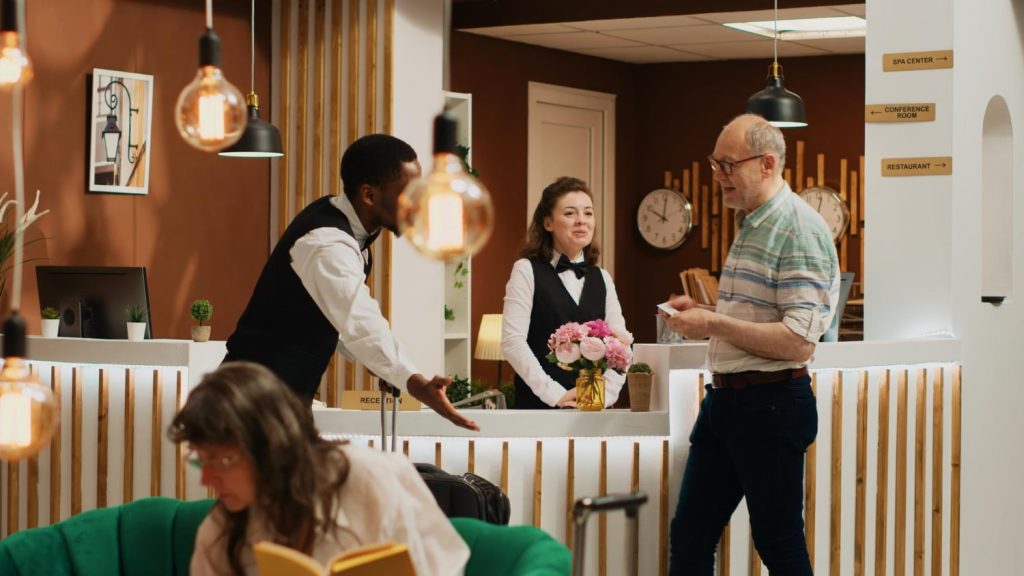
Customer experience (CX) is at the heart of every successful business, but no industry embodies it better than hospitality. From luxury hotels to airlines and fine dining establishments, the hospitality sector has mastered the art of making customers feel valued, understood, and cared for. Unlike other industries, hospitality doesn’t just focus on delivering a service—it creates an experience that keeps customers coming back.
This level of customer-first thinking i...
sn’t exclusive to hospitality. Every business, whether in retail, banking, healthcare, or technology, can apply the same principles to build stronger relationships and enhance customer satisfaction.
Making Every Customer Feel Like a VIP
Think about the last time you walked into a luxury hotel. The staff greeted you by name, remembered your preferences, and ensured your stay was as seamless as possible. It’s not just about good service—it’s about making you feel like the most important guest they have. That’s what great CX should feel like.
Now, imagine if other industries took this approach. What if your bank proactively recommended financial solutions tailored to your goals instead of bombarding you with irrelevant offers? What if your telecom provider anticipated your data usage and suggested the best plan before you ran out? Customers today don’t just want good service; they want to feel understood and valued.
Removing Friction for a Seamless Experience
Hospitality brands obsess over removing friction. At a world-class hotel, you don’t have to struggle with complicated check-ins, slow service, or confusing policies. Everything is designed to be effortless. Businesses in every industry need to adopt this mindset.
A customer should never have to jump through hoops to get support, make a purchase, or resolve an issue. Whether it's a smooth e-commerce checkout, a hassle-free insurance claim, or an easy return process, companies that make interactions simple will always stand out.
Balancing Technology with the Human Touch
With AI, chatbots, and automation on the rise, many businesses are trying to replace human interactions with technology. But hospitality teaches us that while technology enhances CX, it can’t replace genuine human connection.
A self-check-in kiosk at a hotel is great, but a warm welcome from a staff member makes all the difference. A chatbot can handle basic queries, but when a customer has a complex issue, they want a real person who listens, empathizes, and solves their problem. Businesses that find the right balance between digital convenience and human connection will build stronger relationships with their customers.
Anticipating Needs Before Customers Even Ask
One of the best things about great hospitality is that they don’t wait for guests to ask for something—they anticipate it. A hotel that remembers you prefer a quiet room ensures it’s booked for you in advance. An airline that knows your seating preference assigns it before you check-in.
This proactive approach can transform CX in any industry. A retail brand can remind customers when their favorite product is back in stock. A healthcare provider can schedule follow-up appointments based on past visits. A bank can notify customers about upcoming payments before they miss them. Anticipating needs shows customers that a brand truly cares, and that’s what builds long-term loyalty.
Turning Service Failures into Opportunities
No business is perfect. Even the best hotels experience booking errors, flight delays, or service mishaps. But what sets them apart is how they handle these situations. A delayed flight might come with lounge access as a gesture of goodwill. A restaurant might fix a wrong order with a sincere apology and a complimentary dessert.
Customers don’t expect perfection, but they do expect accountability. A quick, sincere resolution can turn a frustrated customer into a loyal one. Businesses that take responsibility, communicate transparently, and go the extra mile when things go wrong will always earn trust.
Loyalty Beyond Discounts: Creating Emotional Connections
Many companies think loyalty programs mean offering discounts and cashback. But hospitality brands know that true loyalty isn’t just about points—it’s about emotional connections.
A frequent flyer doesn’t stay loyal to an airline just for the rewards; they do it because they feel valued as a premium customer. The best loyalty programs go beyond transactions and focus on experiences. Offering personalized perks, VIP treatment, and surprise rewards can make customers feel special in a way that discounts never will.
The hospitality industry has set the gold standard for CX by focusing on personalization, seamless experiences, human connection, and proactive service. Any business can adopt these principles and create customer experiences that are not just good, but unforgettable.
Customers don’t just want to buy a product or use a service—they want to feel valued, respected, and understood. The companies that learn from hospitality and prioritize CX at every touchpoint will be the ones that stand out in today’s competitive landscape.
The real question is: Are you treating your customers like guests or just transactions? Because the brands that get it right aren’t just providing service—they’re creating lasting relationships.
© CX Frontiers. All Rights Reserved. Design by UBS Forums